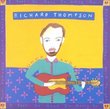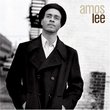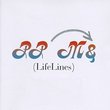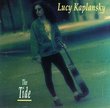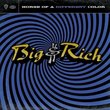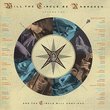| All Artists: Joy Kills Sorrow Title: This Unknown Science Members Wishing: 2 Total Copies: 0 Label: Signature Sounds Original Release Date: 1/1/2011 Re-Release Date: 9/13/2011 Genres: Country, Folk, Pop Styles: Bluegrass, Traditional Folk Number of Discs: 1 SwapaCD Credits: 1 UPC: 701237204123 |
Search - Joy Kills Sorrow :: This Unknown Science
 | Joy Kills Sorrow This Unknown Science Genres: Country, Folk, Pop
Some people prefer pop music that behaves like math: once a few familiar variables have been determined--female vocals or male? Acoustic guitar or electric?--the end result should be easy to predict, and always sound the s... more » |
Larger Image |
CD Details
Synopsis
Product Description
Some people prefer pop music that behaves like math: once a few familiar variables have been determined--female vocals or male? Acoustic guitar or electric?--the end result should be easy to predict, and always sound the same. That's not the Joy Kills Sorrow method. This Boston string band favors chemistry, and seeing where dynamic musical interactions between sensitive players can lead. Hence the title of their sophomore album, This Unknown Science. The members perform with virtuoso skill honed over years of research and study, but as an ensemble they hunt for unexpected outcomes and new discoveries. "We like experimenting and stretching boundaries," explains guitarist Matthew Arcara. On This Unknown Science, Joy Kills Sorrow continue to refine their distinctive sound, born from the best of two worlds. They start with a base of time-honored timbres and techniques, yet fashion original songs and arrangements that reflect contemporary sentiments and sensibilities. While the latter qualities have made Joy Kills Sorrow proven favorites with folk and bluegrass devotees, their emphasis on writing songs that transcend narrow genres allows them to reach wider audiences; their rootsy variation on indie rock is just as apt to appeal to fans of Mumford & Sons as committed Stanley Brothers enthusiasts. "It's not that we think traditional music needs improving," Matt clarifies. "This is just how we happen to play it." The full breadth of Joy Kills Sorrow's gifts is reflected in the range of material showcased on This Unknown Science. At one end of the spectrum you'll find "Reservations," a jubilant tune that kicks off the album in waves and layers--not unlike the all-too-human yearnings and concerns expressed in the lyric--with mandolin and cello interweaving one moment, a single-note banjo melody take the lead the next. At the other extreme is the Spartan "Somewhere Over the Atlantic," its eerie premonitions distilled down to little more than a few plucked notes and Emma Beaton's hushed, haunted vocal. Whether it's the gentle, intertwined licks that open "Wouldn't Have Noticed," or the joyous ensemble singing during "New Man" (written by their friend Michael Calabrese of Lake Street Dive), Joy Kills Sorrow find myriad ways to marry the timeless appeal of roots music with the excitement of living life to the fullest, right here and right now. Although the bulk of these eleven selections were written or co-written by bassist Bridget Kearney (winner of the 2006 John Lennon Songwriting Contest), they don't truly become Joy Kills Sorrow songs until all five members have put their stamp on a new tune. "We'll sit down in a circle and play it together, and talk about what the dynamic structure has to be, what kind of mood and feel we want it to have," says Matt. Sometimes that means negotiating the co-mingling of many distinct voices in a single song, such as "Such Sweet Alarms," which finds space for spirited turns on the cello, banjo and mandolin--plus some lovely vocal harmonies--without ever feeling too busy. At other times, the best thing an individual can do in service of the song is set their instrument aside. "We're always looking after the interest of the music as a whole, even if it means working for months on new material, or making big changes long after we've settled into an arrangement," says Emma. "We all have plenty of opportunities to show our talents in our music, but it's the understated approach we usually take that makes our music special. To focus on realizing their musical vision as fully as possible on This Unknown Science, the band adjourned to the Great North Sound Society studio, a converted 18th century barn in southern interior Maine. Since GNSS has a live-in facility, that choice allowed the band to work without distractions or commutes. As Matt observes, "It's much easier to focus on the music when you're sequestered in a farmhouse for ten days." More important was the opportunity to work with GNSS proprietor Sam Kassirer, who has produced records for Josh Ritter, Erin McKeon, and Langhorne Slim--all artists who, like Joy Kills Sorrow, happily straddle the worlds of roots music and indie rock. Kassirer further encouraged them to experiment and take chances, whether that meant using five different microphones and an amplifier on Emma's vocals, or taking the happy accident when Matt repeatedly played in three against four at the end of "Jason" and making it an integral part of the final version. "There ended up being a lot of things we fooled around with that didn't end up on the record," admits Emma, "but by that same process and strategy, we came up with a ton of new stuff that did." Not that all that sweat and head-scratching leaps to the forefront when you listen to This Unknown Science. No, what resonates throughout this album is that same understated approach that already serves this modern American string band so well; the individual members play their instruments with formidable, prize-winning skill, but they do so in service of melodies and lyrics that can communicate just as powerfully with a Brooklyn twenty-something as a retiree in the Blue Ridge Mountains. And while Joy Kills Sorrow makes it sound as easy as 1-2-3, this isn't music as math; it takes chemistry, trial-and-error, and unspecified quantities of that little something extra to make a record as special as This Unknown Science.
Similar CDs
Similarly Requested CDs
| Richard Thompson Rumor & Sigh Genres: Folk, International Music, Pop, Rock Label: Capitol | |
| Tift Merritt Another Country Genres: Country, Folk, Pop Label: Fantasy | |
| Jessie Baylin Firesight Genres: Alternative Rock, Folk, Jazz, Pop, Rock Label: Verve | |
| Peter Paul & Mary Lifelines Genres: Folk, Pop Label: Warner Bros / Wea | |
| Lucy Kaplansky, Shawn Colvin Tide Genres: Folk, Pop Label: Red House | |
| Little Big Town Place to Land Genres: Country, Folk, Pop, Rock Label: Equity Music Group | |
| Big & Rich Horse of a Different Color Genres: Country, Pop Label: Warner Bros / Wea | |
| Yanni Optimystique Genres: Jazz, New Age, Pop, Rock Label: Private Music | |
| Nitty Gritty Dirt Band Will Circle Be Unbroken 2 Genres: Country, Folk, Pop, Rock Label: Mca Nashville | |

 Track Listings (11) - Disc #1
Track Listings (11) - Disc #1
